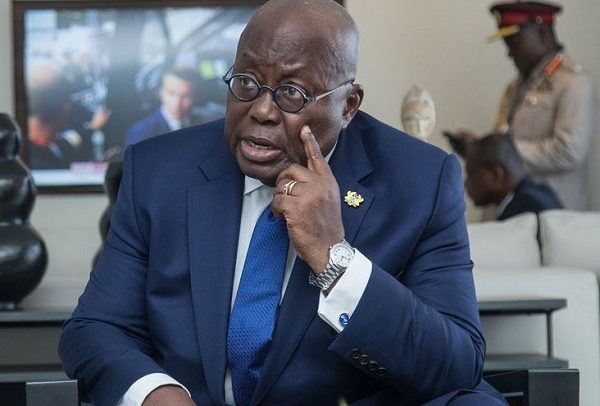President Nana Akufo-Addo
President Akufo-Addo wants the newly constituted Emoluments Committee to take a second look at the provisions (benefits) of Article 71 office holders.
The Constitution of the Republic of Ghana (1992) creates a certain class of public officers in Article 70, and provides for their terms and conditions of office in Article 71 which has almost always become an issue for public debate.
The President therefore think it will be prudent for the newly constituted committee to do a critical review of the work of the previous Emolument Committees constituted by previous Presidents and proffer recommendations as to how these concerns can be addressed.
“I must indicate that in recent times, a lot of public discourse surrounding the remuneration of public officers has centred primary on those of Article 71 office holders and whether or notwithstanding the constitutional imperatives, we are deserving of what is been paid to us in view of the challenges currently confronting out national economy” , was how he put it.
That, was when he swore in members of the new committee at the Jubilee House Wednesday evening, whilst noting with emphasis “we might as well be that your work should also focus on these concerns and make recommendations on how they should be addressed.”
Whilst he admitted the task ahead of them will be an arduous one, President Akufo-Addo was confidence they will deliver on their mandate within the statutory timelines provided by the law from where the committee derives its mandate.
“The terms of reference of the committee are two-fold, one, to make recommendations in respect of emoluments and other privileges for Article 71 office holders as specified under the constitution and two, to examine any other relevant matter that the committee deems appropriate to its work”, was his charge.
Apart from reviewing the works of their predecessors, the President said the Committee may also want to take a look at best practices that exist in other jurisdictions as far as the emoluments of some specific public office holders are concerned and make recommendations for the adoption best of practices.
“It appears that every president is bound to establish such a committee. I think it may be worth our while to examine the practice of other jurisdictions, for example, the American one, where the principles are established and automatically adjusted according to certain objective criteria”, was how he put it.
On her part, Chairperson of the Committee, Dr. Janet Fofie, said the new committee will review all the previous works done by their predecessors in order to produce a comprehensive and appropriate report to the President for onward decision making and implementation.
“The committee promises to examine all previous emoluments committee reports and any other documents related to the subject. As a retired Article 71 officer holder myself, I am keenly aware of the significance of this committee.
“I am also aware of the sometimes, very heated debate in our national conversations over the years on this matter. It is my hope that the committee will get valuable insights, views, inputs and support from all stakeholders to enable us deliver a comprehensive and timely report to his excellency for consideration and approval” Dr Janet Fofie said.
Other members of the Committee include Professor Gyan Baffour, former Minister for Planning, and Madam Gloria Ofori Boadu, a lawyer and women’s rights activist.
The rest are Dr. Osei-Akoto, a distinguished academic at the prestigious Institute of Statistical, Social and Economic Research (ISSER) University of Ghana and Ben Arthur, Labour Administration, Employment Service and Labour Relations specialist and Head of the Fair Wages and Salaries Commission (FWSC).
Article 71
Article 71 of the 1992 constitution is entitled “Determination of Certain Emoluments” and it states as follows; (1) The salaries and allowances payable, and the facilities and privileges available, to: (a) the Speaker and Deputy Speakers and members of Parliament;
(b) the Chief Justice and the other Justices of the Superior Court of Judicature; (c) the Auditor-General, the Chairman and Deputy Chairmen of the Electoral Commission, the Commissioner for Human Rights and Administrative Justice and his Deputies and the District Assemblies Common Fund Administrator;
(d) the Chairman, Vice-Chairman and the other members of— (i) a National Council for Higher Education howsoever described; (ii) the Public Services Commission; (iii) the National Media Commission; (iv) the Lands Commission; and (v) the National Commission for Civic Education;
Being expenditure charged on the Consolidated Fund, shall be determined by the President on the recommendations of a committee of not more than five persons appointed by the President, acting in accordance with the advice of the Council of State.
(2) The salaries and allowances payable, and the facilities available, to the President, the Vice-President, the chairman and the other members of the Council of State; Ministers of State and Deputy Ministers, being expenditure charged on the Consolidated Fund, shall be determined by Parliament on the recommendations of the committee referred to in clause (1) of this article.
(3) For the purposes of this article, and except as otherwise provided in this Constitution, “salaries” include allowances, facilities and privileges, and retiring benefits or awards.
By Charles Takyi-Boadu, Presidential Correspondent

